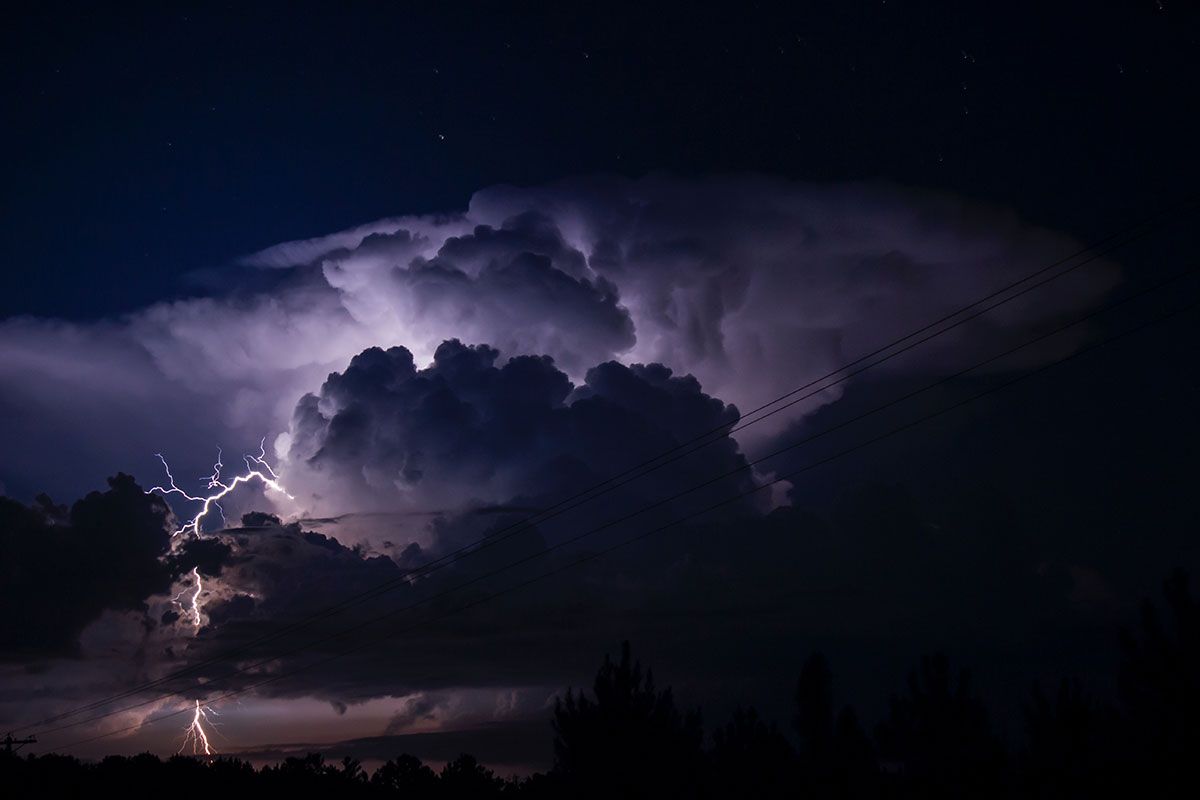Lessons from Storm Babet: How to Safeguard Your Home Against Storms
The destructive force of nature, as exemplified by Storm Babet this week, has once again reminded us of the vulnerability of our homes to the perils of damage caused by storms. As extreme weather events become increasingly common, it is imperative to learn from these incidents and take proactive measures to protect our homes against potential damage.
Whilst Essex and Suffolk have not been as badly affected as the North of England and Scotland, over 2 inches of rainfall has fallen in the past 24 hours, couple with high winds showing us just what damage can be caused. By focusing on critical areas such as broken or blocked guttering, drainage issues, roof vulnerabilities, and other related concerns, we can significantly reduce the risks of damage associated with storms and protect our homes from the devastating aftermath of such natural calamities.

Storms and the damage they can cause to your home
Storms, with their powerful forces of nature, can wreak havoc on residential homes, causing a range of problems that can significantly impact both the structural integrity and the comfort of living spaces. Here are several common issues that can arise in residential homes as a result of storms:
- Roof Damage: High winds and heavy rainfall can lead to various forms of roof damage, including missing or damaged tiles or slates, or even punctures and leaks (particularly in flat roofing). Such vulnerabilities can result in water seepage, structural weakening, and ultimately, interior damage to the property. Conducting regular roof inspections, addressing any existing damages promptly, and ensuring proper insulation can effectively enhance the structural resilience of roofs, thereby minimising the likelihood of water seepage and subsequent interior flooding.
- Flooding: Intense rainfall, combined with blocked drainage systems and poor landscaping, can result in severe flooding, leading to water damage, mould growth, and structural instability. Floodwater can also compromise the foundation and electrical systems, posing significant safety risks. Make sure that drains remain clear to allow water to flow, and landscape gardens to avoid allowing water to stand. Well-maintained guttering also plays a significant part in diverting rainwater away from our homes. The accumulation of leaves, debris, and other obstructions in the guttering system can impede the smooth flow of water, leading to overflow and potential water ingress. Regular inspections and timely cleaning of guttering are essential in preventing blockages and ensuring efficient water drainage, thereby reducing the risk of flooding during heavy rainfall.
- Window and Door Damage: Debris carried by strong winds can collide with windows and doors, causing breakage and compromising the structural integrity of the building. Broken windows and doors can allow water and debris to enter the home, leading to further damage and safety concerns. In extreme circumstances, doors and windows might require sandbagging to prevent significant flood damage. Damaged doors and windows are also a security concern.
- Power Outages: Storms, particularly those accompanied by thunder and lightning, can cause power outages, disrupting daily life and potentially leading to the loss of perishable goods. Extended power outages can also affect heating and cooling systems, posing risks to the health and safety of residents, especially during extreme weather conditions. In the case of thunderstorm, electrical surges can be a menace to appliances and electrical equipment; so don’t forget to unplug them, or use surge protection.
- Fallen Trees and Debris: Severe storms can uproot trees and scatter debris, which can damage roofs, windows, and other exterior structures of residential homes. Fallen trees can also pose a significant safety risk, especially if they damage power lines or obstruct roads and pathways.
- Basement and Foundation Issues: Excessive rainfall and flooding can lead to water seepage into basements, causing structural damage, mould growth, and the deterioration of the foundations. Such issues can compromise the stability of the entire house and necessitate costly repairs.
- Landscape Destruction: Intense storms can lead to the erosion of soil, the uprooting of plants, and the destruction of landscaping features, resulting in both aesthetic and functional damage to the property. Soil erosion can also affect the stability of the property’s foundation, leading to long-term structural issues.
- Mould and Mildew Infestation: Excessive moisture from storms, especially when accompanied by flooding or water seepage, can create conducive conditions for the growth of mould and mildew. These can not only cause structural damage but also pose health risks to the residents, triggering allergies, respiratory problems, and other health complications.
- Structural Weakening: The cumulative effects of multiple storms over time can gradually weaken the overall structural integrity of residential homes, leading to long-term damage and the need for extensive repairs and renovations to ensure the safety and stability of the property.
- Fence Panels: We all know all too well that as soon as there’s a strong gust of wind, fence panels start popping. As well as the aggravation factor, missing fence panels also pose a risk to security; both keeping people out, but also keeping kids and pets within your garden. Whilst a relatively simple fix, it’s a common problem once strong winds start to blow in our winter storms.
Contact Us
In the aftermath of storms such as Babet, the importance of protecting our homes against storm damage has become more apparent than ever. By understanding the vulnerabilities posed by storms, we can take proactive measures to protect our homes from their devastating impact. Through regular maintenance, timely repairs, and the implementation of effective preventive strategies, we can create a more resilient living environment that can withstand the challenges posed by extreme weather events, safeguarding both our properties and our peace of mind. If you require any help getting ready for a possibly eventful autumn and winter of storms, contact Infinity Home Services by calling 0800 148 8088 or completing the form below and we’ll be in touch!